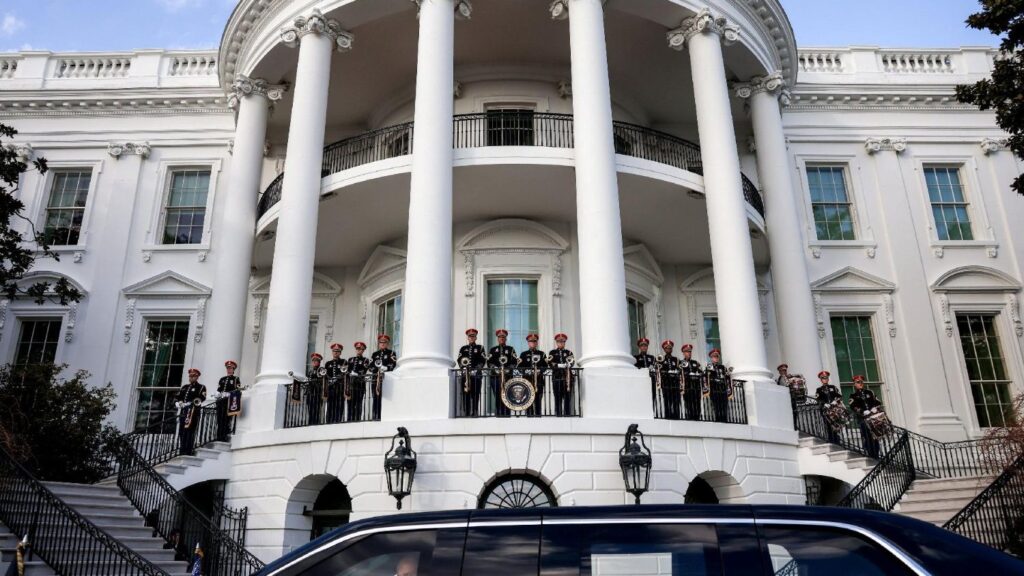An editorial in L’Osservatore Romano examines the most pressing challenges awaiting the new US president in the hours before his inauguration. It is crucial for the occupant of the White House to work to overcome the polarization that has long characterized American political life. A “divided” American state would certainly pose a serious threat to an already divided and fragmented world.
Alessandro Gisotti
No, history did not “end” with the fall of the Berlin Wall and the dissolution of the Soviet Union. The illusions once held by some political scientists and politicians at the end of the last century turned out to be dramatically wrong.
Indeed, this became clear in the “unthinkable” events of the Twin Towers terrorist attacks at the beginning of the 21st century, which served as a harsh awakening for those who had envisioned an era of global stability characterized by liberal economics. Ta. .
More than 30 years after the historic day when the walls of what became one of the most repressive totalitarian regimes in history fell, humanity has experienced an ever-increasing number of conflicts that have evolved from local to regional crises. It has reached its peak. Pope Francis prophetically called “World War III fought piecemeal.” Therefore, history is not over yet.
The economic, political and military power of the world’s great powers has been reshaped over the past quarter century, which the pope described as marking “a change of times” rather than an “epoch of change.”
Today, we live in a multipolar world, making the pursuit of consensus more complex and less straightforward, especially in times of crisis. But this is the world we live in, and the principle of realism requires all leaders (especially the most powerful ones) to respond to the great challenges of our time with new ideas that reject “this is the way it is.” We need to realize that we need paradigms and creativity. It’s always been done. ”
It is in this historical context that on Monday Donald Trump will take his second oath to defend the U.S. Constitution and serve the American people.
As has been widely noted, there are many unprecedented aspects of this event, and even in a world without a single superpower, no one can overlook the lasting influence of the United States on international political and economic dynamics. There is both hope and concern.
President-elect Trump has reiterated his commitment to ending the war in Ukraine and pledged that the United States would avoid any new conflict during his term as president. It remains to be seen what attitude he will take toward international organizations.
Immigration, the environment, and economic development (increasingly driven by technology) are among the key issues on which the 47th occupant of the White House will be closely scrutinized not only by the American public but also by the international community. .
Historically, when the United States opened itself to the world (after all, the United Nations is essentially an “American invention”) and, together with its allies, built its system amidst the limits of human effort. has excelled in It has ensured freedom, economic development, and progress in human rights. This has happened with both Republican and Democratic presidents. Therefore, it would be a “contradiction” for America to turn inward.
President Trump has been called upon to overcome the division and polarization that has defined American political life for years, and the attack on the Capitol on January 6, 2021 marked one of the saddest days in the country’s history. . This is undoubtedly a difficult task, but a necessary one for the new administration. A “divided” America would pose a serious threat to an already divided and fragmented world.
Ten years ago, Pope Francis, the first pope from the Americas, gave a speech to the U.S. Congress emphasizing America’s founding values. Reconsidering this speech may also be helpful to President Donald Trump and Vice President J.D. Vance.
In this widely acclaimed speech on Capitol Hill, across party lines, four great Americans provide leadership that helps chart the course of those entrusted with political responsibilities, even in turbulent times. It was recognized as a star.
Pope Francis said, “A nation is a nation that, when it champions freedom, as Lincoln did, and when it enables people to ‘dream’ of the full rights of all their brothers and sisters, as Martin Luther King Jr. aspired to.” “We can be considered great when we foster a culture of greatness.” It is a fruit of faith that becomes dialogue and sows seeds of peace in the meditative style of Thomas Merton as Dorothy Day tirelessly strives for justice and the cause of the oppressed. ”
These are the values that made America great and are what the world still needs today.



